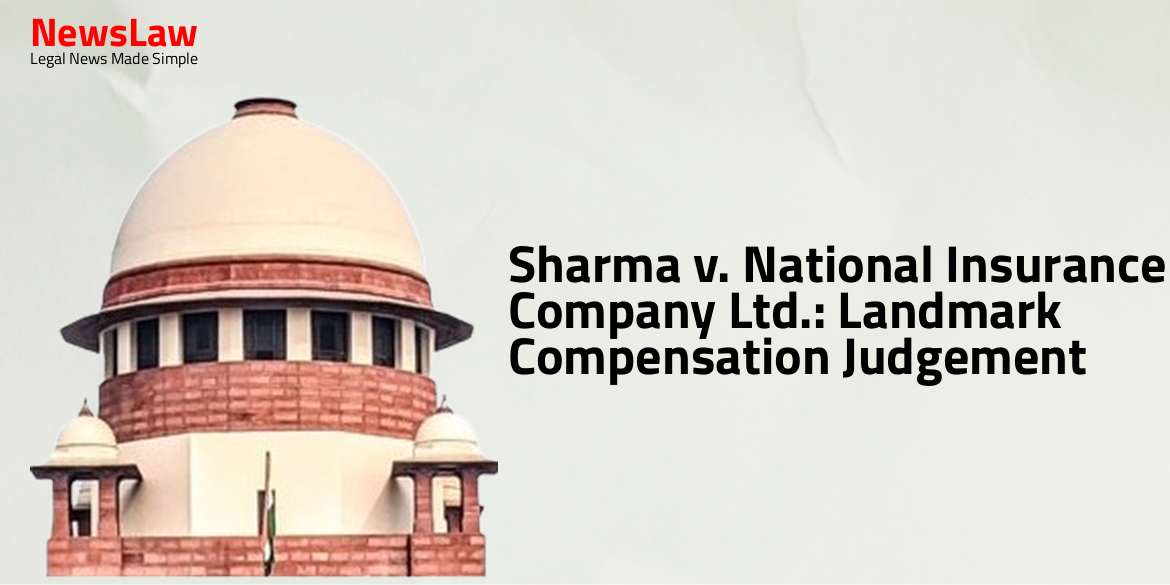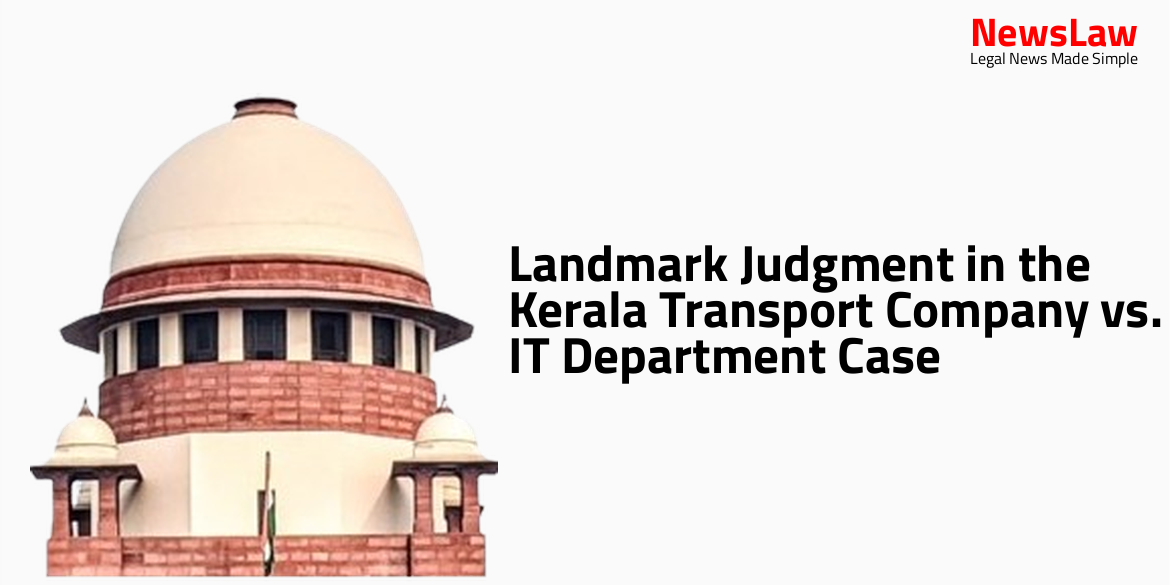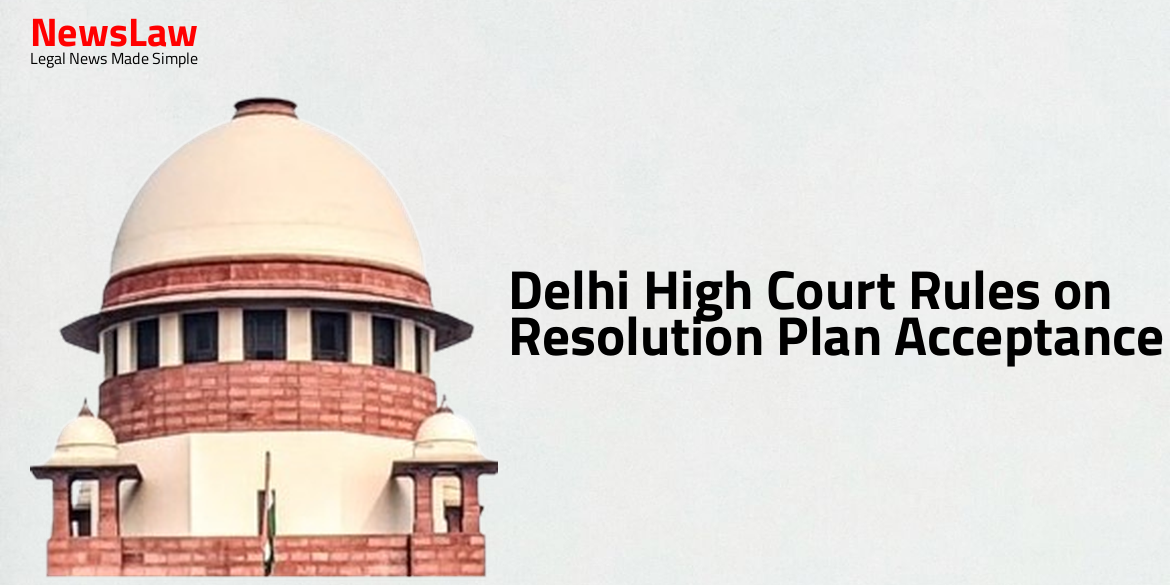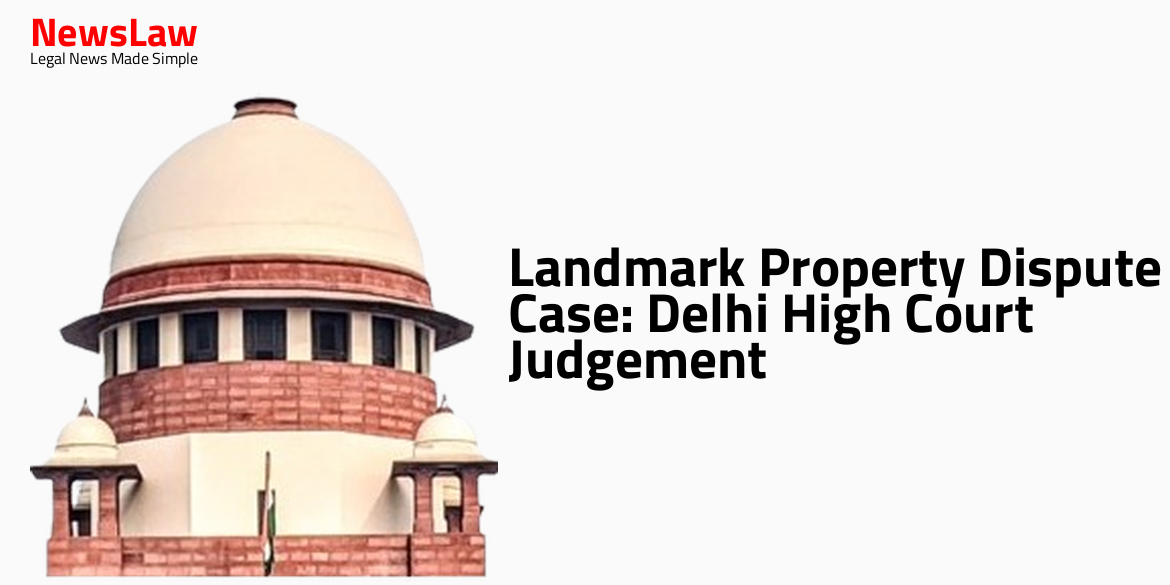In a recent ruling by the Delhi High Court, a major compensation case was resolved in Sharma v. National Insurance Company Ltd. The judgement entails significant financial implications for the parties involved, shedding light on the complexities of liability and compensation in civil claims. Stay tuned to understand the intricacies of this groundbreaking decision that sets a precedent in legal proceedings.
Facts
- The deceased Puneet Sharma met with an accident on 25.02.2011 while driving his car.
- The offending vehicle, a Tata Safari, was being driven by Ravi Khanna in a rash and negligent manner.
- Witness PW2/Rahul Singh testified to witnessing the incident and stayed at the spot until the body was moved to the Mortuary.
- Statements from both PW-2 and R1W1 confirm that the offending vehicle was stopped a distance ahead after the accident.
- A claim petition for compensation was filed by the deceased’s wife, minor daughter, and father on 25.05.2011.
- The Tribunal found the testimonies of PW-1 and PW-2 trustworthy in establishing the driver’s culpability.
- Photographs and site plan submitted as evidence confirmed the damage to both vehicles and the positioning at the scene.
- The Tribunal rejected the respondent’s claim that the deceased was driving negligently, deeming it preposterous.
- The insurance company is considered the principal tort-feasor along with the driver and owner of the offending vehicle.
- The insurance company/respondent No.3 was burdened with the payment.
- The income of the deceased was assessed based on the salary as Vice President at Rs.14,00,000 per annum, after deductions amounting to Rs.11,07,756.
- The deceased left behind his wife and daughter, leading to a deduction of 1/3 towards personal and living expenses.
- The apportioned compensation by the Tribunal included loss of dependency, love and affection, funeral expenses, loss of estate, and loss of consortium.
- The loss of love and affection was granted Rs.1,00,000 in total.
- A specific amount of Rs.25,000 is awarded for funeral expenses.
- Loss of consortium was fixed at Rs.1,00,000 based on relevant case laws.
- The appellant challenges the judgment on various grounds including the testimonies of witnesses, the negligence of the driver, and the enhancement of income percentage.
Issue
- The vehicle of the deceased did not hit the vehicle of R1 as alleged.
- If the vehicles had collided, the deceased’s vehicle should have been found closer to R1’s vehicle.
- This proximity was not observed at the scene of the incident.
Analysis
- Findings of the criminal court are not binding on the determination of guilt by the Tribunal regarding Ravi Khanna’s involvement in the accident.
- The testimony of eyewitness PW-2 clearly states that Ravi Khanna was driving the offending vehicle in a rash and negligent manner, causing the accident.
- The claim that the deceased’s vehicle was being driven negligently is not credible as per PW-2’s account.
- Being acquitted in a criminal matter does not absolve Ravi Khanna of liability in the civil claim for the accident.
- Future prospects of the deceased have been rightly reckoned at 50% based on National Insurance Company Ltd. v. Pranay Sethi case.
- The age of the deceased was 36 years, leading to a specific evaluation of future prospects.
- This decision was crucial in determining the compensation and financial implications for the case.
Decision
- The claimant is entitled to receive Rs. 1,67,26,340/- with 7.5% interest from the date of filing the petition.
- The compensation for loss of love, affection, and consortium is rectified as per the decision in Pranay Sethi case.
- The total compensation includes loss of dependency, consortium, funeral expenses, and loss of estate.
- The appeal is dismissed except for rectifying the total quantum of compensation.
- The father of the deceased has passed away, and the daughter has no objection to releasing the compensation to the wife and daughter of the deceased.
- The Insurance Company is directed to deposit the entire amount with interest within four weeks, failing which penal interest of 12% per annum will be applicable.
- The statutory deposit of Rs. 25,000/- on filing the appeal will be forfeited to the State.
Case Title: NEW INDIA ASSURANCE CO. LTD Vs. SHWETA NAYYAR SHARMA & ORS (2024:DHC:3639)
Case Number: MAC.APP.-630/2014



